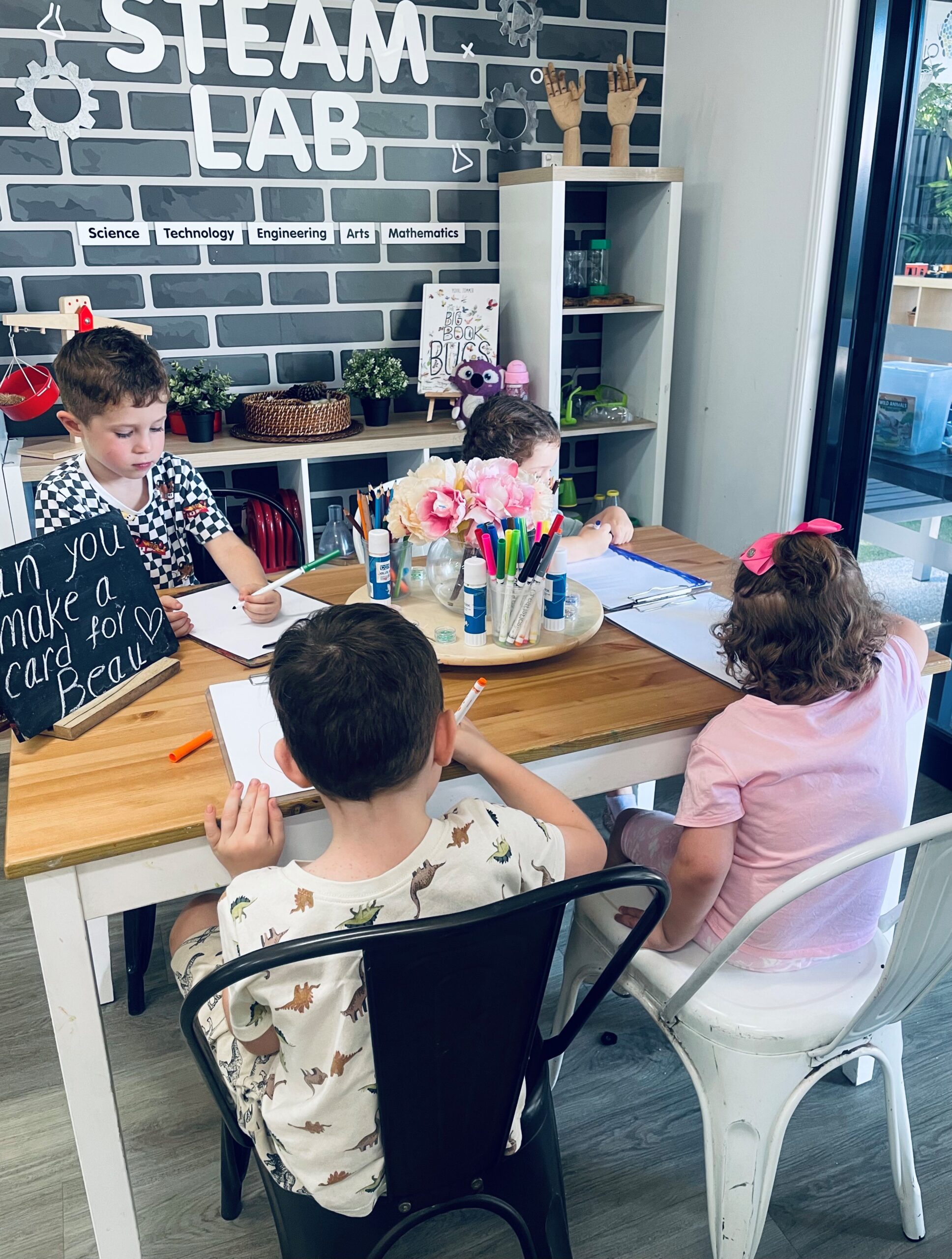
Post updated July 2025.
Starting “big school” is an exciting milestone for your child, and an emotional one for you, too. If you’re wondering when to enrol or whether your child is ready, you’re not alone. It’s a common question for families with preschool-aged children across Australia.
In this post, we’ll explain when children can start school in each state and territory, unpack the often-confusing terminology (Prep, Kindergarten, Foundation - what’s the difference?), and explore how two years of preschool can help your child feel confident and prepared when the big day arrives.
When Can My Child Start School? (By State)
In Australia, children typically begin school in the year they turn five or six, but the specific cut-off dates and names for school entry levels vary depending on where you live.
Here’s a simple guide to help you make sense of it all:
Queensland - Prep
- The first year of school is called Prep.
- Children must turn 5 by 30 June in the year they start Prep.
- The year before Prep is called Kindergarten, and is typically delivered in long day care or sessional programs.
New South Wales - Kindergarten
- The first year of school is called Kindergarten.
- Children must turn 5 by 31 July in the year they start.
- The year before school is referred to as Preschool.
Australian Capital Territory - Kindergarten
- The first year of school is called Kindergarten.
- Children must turn 5 by 30 April in the year they start.
- Preschool is the year prior to Kindergarten.
Victoria - Foundation (also known as Prep)
- The first year of school is officially called Foundation, though many schools and families call it Prep.
- Children must turn 5 by 30 April in the year they start.
- The year before school is called Kindergarten.
Northern Territory - Transition
- The first optional year of school is called Transition.
- Children can start if they turn 5 by 30 June.
- School is compulsory from age 6.
- The year before Transition is referred to as Preschool.
Western Australia - Pre-Primary
- The first compulsory year of school is called Pre-Primary.
- Children must turn 5 by 30 June in the year they start.
- Most children attend Kindergarten at age 4, the year before Pre-Primary.
South Australia - Reception
- The first year of school is called Reception.
- Children must turn 5 by 1 May to begin Reception in Term 1 of that year.
- The year before school is commonly referred to as Preschool or Kindergarten.
Tasmania - Prep
Tip: If your child’s birthday is close to your state’s cut-off date, or you’re unsure whether they’re ready, speak to your early childhood educators or local school. Many families consider delaying or bringing forward their child’s start based on readiness.
Why Two Years of Preschool Makes a Difference
While the enrolment age is a helpful guide, your child’s emotional, social, and cognitive readiness matters just as much. That’s where early learning comes in.
Research shows that children who attend a high-quality early learning program for two years before starting school are better prepared across multiple areas. These include early literacy and numeracy, social interaction, concentration, and emotional self-regulation.
A 2017 study from the University of Melbourne found that children who attended preschool in the year before school were up to 40% ahead of their peers by Year 3 (Everyone Benefits, 2017). Other studies, including Lifting Our Game and research by the Mitchell Institute, show that two years of preschool offers even greater advantages.
Children who consistently attend early education are more likely to:
- Start school with confidence
- Enjoy a positive attitude toward learning
- Build friendships and self-regulation
- Achieve higher academic results
- Stay engaged through to high school graduation
Every child develops at their own pace, but early learning gives them the strongest possible foundation to build on, socially, emotionally and academically.
Our School Readiness Program at Affinity Education
At Affinity Education, we’ve designed a School Readiness Program that’s tailored for children aged 3 to 5 years, delivered across our early learning centres.
This nationally recognised program is part of our exclusive Lifelong Learning Curriculum, which combines play-based learning with intentional teaching to support your child’s development at every stage.
We focus on four key areas:
- Emotional confidence - helping children understand and express feelings
- Social connectivity - fostering friendships and communication
- Foundational learning - building early literacy, numeracy, and problem-solving
- Physical health and wellbeing - supporting movement, nutrition, and rest
The program is aligned with the Early Years Learning Framework (EYLF) and personalised to meet each child’s interests and strengths. It ensures your child builds the skills and confidence they’ll need when it’s time to take that next big step.
What Can I Do Now?
If school is on the horizon, here are a few simple ways to support your child:
- Talk positively about school and what to expect
- Practise lunchboxes, toileting, and getting dressed independently
- Organise playdates or social activities to build confidence
- Read books about starting school and making new friends
- Chat with your child’s educators about their school readiness
And if you're just starting to explore your early education options, we're here to help.

